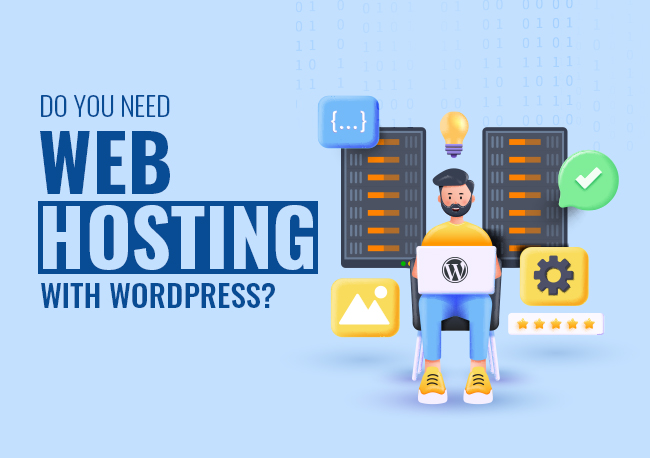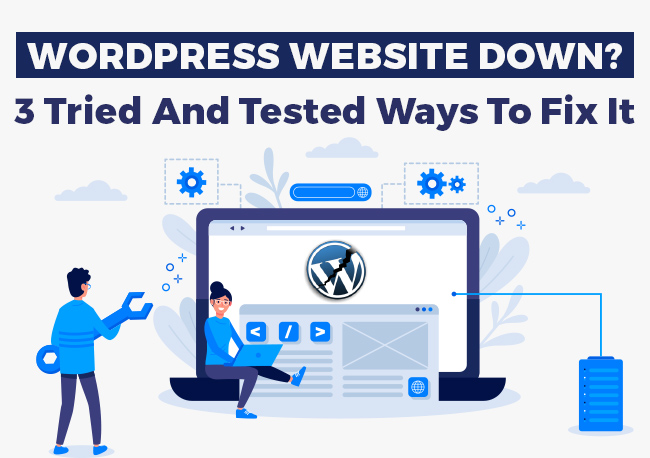WordPress is a free platform initially developed to build blogs. However, despite its initial use as a blogging platform, many project managers and website developers prefer WordPress to develop Content Management Systems (CMS) for websites. Today, WordPress is the most favorite solution for media and content managers due to the various perceived advantages that the platform offers.

However, in many circumstances, web and IT professionals have discovered that WordPress was not the right choice and there could have been better options available. So, if your company has decided to create a new website, which platform would you suggest?
Related Blog: Different Types of Web Hosting Services
While deciding on developing a website, you can run into several problems if you do not have access to a professional team of programmers. However, you can then rely on a CMS to get your task done. Nevertheless, there are two sides to each coin.
Therefore, you can either get the ball rolling and a great website is done using WordPress or get something that still requires a lot of technical prowess to get it where you want it to be. As we have discussed, content management systems have made the process of blogging simpler, but many other tasks related to website development can be relatively difficult to achieve.
The popularity of WordPress extends to all corners of the globe as many companies big and small use it to power their websites. The WordPress platform is completely scalable and used for websites large and small. This also means that a large developer community exists in order to continuously improve the software as well as create additional facilities and enhancements.
Hence, while WordPress has many advanced capabilities, it has some limitations in other areas. Let us take a quick look at the advantages and disadvantages of using WordPress:
WordPress Pros:
- Straightforward content updating:
- This is the main reason why most website-development managers like to use a CMS for website development, especially in cases where fresh content is regularly required. With nominal technical inputs, custom modules can be set up which can be configured as text areas, which can be used to enter text by anyone with basic computer skills. In addition, WordPress comes with inbuilt blogging that helps site managers to include blog sections on the website easily.
- SEO Integration:
- Many SEO plugins exist for WordPress, which allow you to help integrate your SEO efforts with the SERPS. With these plugins, it is possible to integrate basic SEO for each page of your website. This includes Meta titles, Meta descriptions, and H1 tags. Some plugins even indicate the ‘SEO health’ of your website by informing you how well your website is optimized for SEO.
- Easy eCommerce options:
- Many plugins also exist for creating eCommerce applications that allow shopping cart processing, ordering, shipping, and others. Suitable eCommerce integrations even exist for nearly every application or site of every size. Additionally, for WordPress, many basic-plugins are available without any cost.
- WordPress is optimized for handheld devices:
- With WordPress, it is easy to set up a responsive theme that works fine on mobile devices and tablets. This ensures a consistent brand and user experience for your website. You can also obtain responsive starter themes from WordPress. With additional technical knowledge, you can also create complex custom themes that can easily work on hand-held devices.
WordPress Cons:
- Limited Unique Options
- Since the number of basic themes WordPress offers is limited, there exists a possibility that a similar theme could be in use by someone else. Hence, you lose the opportunity of creating a unique and exclusive website.
- Need to download updates often.
- Since WordPress releases a large number of patches and updates every now and then, it is essential for your website to remain up to date in order to stay safe from pirates and hackers that prowl the web.
- Requirement of an experienced programmer.
- It is easy the build a WordPress site, but in order to go ahead with customization and adding the necessary bells and whistles, you will need an experienced WordPress programmer or developer.
- Initial Low Development Costs can be Misleading
- Although an advantage of WordPress is that it can be used to construct a website within a tight deadline and it is SEO friendly in nature, the initial low development costs can be misleading since a more ‘standard looking’ website requires substantial programming and can jack up the costs.
Conclusion:
Nevertheless, the pace at which you can develop a WordPress website can put you at an advantage vis-à- vis your competitors since you can develop and make your WordPress site online in an amazingly short period. With a better brand representation and ability to control the website content exclusively, you can easily beat the competition and obtain an early bird and vantage footing for yourself in the market.



